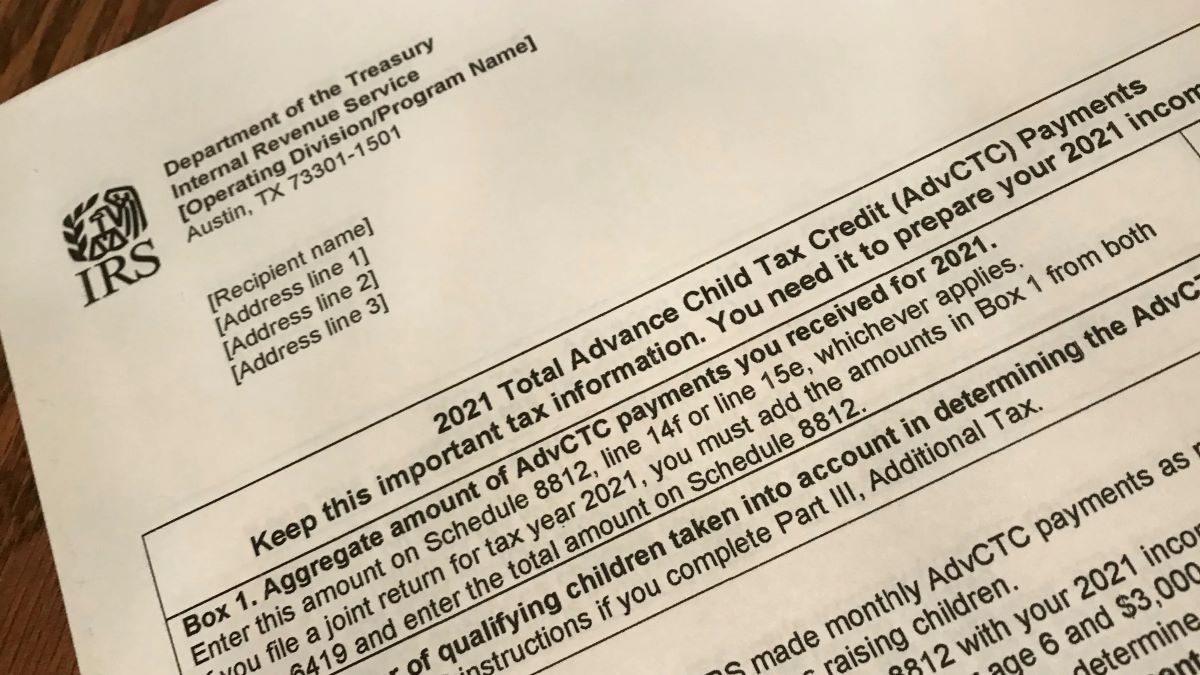

Finance
How To Change Address With Credit Bureaus
Published: January 5, 2024
Learn how to change your address with credit bureaus and ensure your financial information is up to date. Explore the step-by-step process to update your address in the credit bureaus' records.
(Many of the links in this article redirect to a specific reviewed product. Your purchase of these products through affiliate links helps to generate commission for LiveWell, at no extra cost. Learn more)
Table of Contents
- Introduction
- Understanding the Importance of Updating Your Address with Credit Bureaus
- Steps to Change Address with Credit Bureaus
- Step 1: Update Your Address with the Postal Service
- Step 2: Contact Equifax to Change Address
- Step 3: Contact Experian to Change Address
- Step 4: Contact TransUnion to Change Address
- Additional Considerations
- Notifying Your Creditors and Service Providers
- Monitoring Your Credit Report
- Conclusion
Introduction
When it comes to managing your finances, keeping your personal information up to date is crucial. One key piece of information that often gets overlooked is your address. Having the correct address on file with the credit bureaus is essential for several reasons. It ensures that you receive important financial documents and notifications promptly. Additionally, it helps protect you from potential fraud or identity theft.
Changing your address with the credit bureaus is a simple yet important step that can often be overlooked. This article will guide you through the process of updating your address with the three major credit bureaus: Equifax, Experian, and TransUnion.
By following the steps outlined in this article, you can ensure that your updated address is accurately reflected in your credit reports. This, in turn, will help maintain the accuracy of your credit history and facilitate smooth financial transactions in the future.
Remember, changing your address with the credit bureaus is just the first step. You should also inform your creditors and service providers of your new address to ensure that you receive bills, statements, and important communications in a timely manner.
So, let’s dive into the process of updating your address with the credit bureaus and explore some additional considerations to keep in mind during this process.
Understanding the Importance of Updating Your Address with Credit Bureaus
Keeping your address up to date with the credit bureaus is crucial for maintaining the accuracy of your credit history and ensuring smooth financial transactions. Here’s why:
- Receive important financial documents: By updating your address with the credit bureaus, you ensure that you receive important documents such as credit card statements, loan statements, and other financial notifications in a timely manner. This is particularly important if you have opted for paper statements or if certain communications are legally required to be sent through mail.
- Prevent fraud and identity theft: A change of address is often one of the first steps taken by fraudsters and identity thieves to redirect financial communications to their own addresses. By promptly updating your address with the credit bureaus, you reduce the risk of sensitive financial information falling into the wrong hands and protect yourself from potential fraud or identity theft.
- Maintain accurate credit history: Your credit history plays a significant role in your financial well-being. Lenders, landlords, and potential employers often refer to your credit reports to determine your creditworthiness. By ensuring that your address is up to date with the credit bureaus, you help maintain the accuracy of your credit history and prevent any discrepancies that may arise due to outdated or incorrect address information.
It’s important to note that each credit bureau operates independently, so updating your address with one does not automatically update it with the others. To ensure that all three major credit bureaus have your correct address, you need to follow the specific steps provided by each bureau. The next section will guide you through the process of changing your address with Equifax, Experian, and TransUnion.
Steps to Change Address with Credit Bureaus
Updating your address with the credit bureaus is a straightforward process that involves contacting each bureau individually. Here are the steps to follow:
Step 1: Update Your Address with the Postal Service
Before reaching out to the credit bureaus, it’s important to update your address with the postal service. This will help ensure that any mail sent to your old address is forwarded to the new one. You can easily do this by visiting your local post office or updating your address online through the official USPS website.
Step 2: Contact Equifax to Change Address
To update your address with Equifax, you can visit their website or contact their customer service directly. They may require you to provide personal identification information and verify your identity. Be prepared to provide your Social Security number, date of birth, and other relevant details. Once your address change is processed, Equifax will update your credit reports accordingly.
Step 3: Contact Experian to Change Address
Similar to Equifax, you can update your address with Experian through their website or by contacting their customer service. They will guide you through the process and may ask for personal identification information to verify your identity. After your address change is confirmed, Experian will update your credit reports to reflect the new address.
Step 4: Contact TransUnion to Change Address
To change your address with TransUnion, you can visit their website or reach out to their customer service. They will guide you through the necessary steps to update your address and may require you to provide personal identification information for verification. Once your address change is complete, TransUnion will update your credit reports accordingly.
Remember to keep a record of any confirmation numbers or reference codes provided during the address change process. This will help you in case you need to follow up or verify the changes in the future.
It’s important to note that the address change process with each credit bureau may vary slightly. It’s recommended to visit their official websites or contact their customer service directly for the most accurate and up-to-date information.
Now that you have updated your address with the credit bureaus, there are a few additional considerations to keep in mind, which will be covered in the next section.
Step 1: Update Your Address with the Postal Service
Before contacting the credit bureaus to change your address, it is crucial to update your address with the Postal Service. The United States Postal Service (USPS) offers a convenient and efficient way to ensure that any mail sent to your old address is forwarded to your new address. This step is essential for maintaining the flow of important financial documents and notifications during the transition.
To update your address with the Postal Service, you have a few options:
1. Visit your local post office:
Head to your nearest post office and request a Change of Address (COA) form. Fill out the form accurately and submit it to the postal clerk. You may be required to provide identification to verify your identity. It’s important to ensure that the information you provide matches the information on file with the credit bureaus.
2. Update your address online:
Visit the official USPS website and navigate to the Change of Address page. Here, you will find an online form that you can fill out with your current and new address details. Again, make sure the information you provide matches that on file with the credit bureaus. There may be a small fee associated with online address changes.
Regardless of the method you choose, it’s crucial to provide accurate information. Any errors or discrepancies in your address can lead to mail delivery issues and potential complications with your credit history.
Once you’ve successfully updated your address with the Postal Service, they will begin forwarding your mail to your new address for a specified period. However, it’s important to note that not all mail may be forwarded, especially magazines, catalogs, and some government-related mail. Informing individual companies, organizations, and institutions of your address change is still necessary.
Updating your address with the Postal Service is a crucial first step in the process of changing your address with the credit bureaus. It helps to minimize the risk of missing out on important financial documents and ensures a smooth transition during the address change process. Now that you’ve completed this step, you can move on to contacting Equifax, Experian, and TransUnion to update your address with them.
Step 2: Contact Equifax to Change Address
After updating your address with the Postal Service, it’s time to reach out to Equifax, one of the three major credit bureaus, to update your address with them. Equifax collects and maintains credit information on millions of consumers, so it’s important to ensure that they have your correct address in their records.
There are a few ways you can contact Equifax to change your address:
1. Online:
Visit the Equifax website and navigate to the address change section. Follow the instructions provided and fill out the necessary forms with your updated address details. Equifax may require you to provide personal identification information to verify your identity. This may include your Social Security number, date of birth, and other relevant details. Make sure to provide accurate information to expedite the address change process.
2. Phone:
Contact Equifax’s customer service through the phone. You can find the customer service contact number on their website. Be prepared to provide the necessary personal identification information to verify your identity. The Equifax representative will guide you through the address change process and update your address accordingly.
During the contact with Equifax, it’s a good idea to inquire about any additional steps or documentation that may be required. Equifax may ask for specific proof of address, such as a utility bill or a lease agreement, to further verify your new address. Be sure to have these documents handy in case they are requested.
Once Equifax has processed your address change request, they will update your credit report to reflect the new address. It’s important to note that the change may not be immediate and could take a few days or weeks to be reflected in their records.
Remember to keep track of any confirmation numbers or reference codes provided during the address change process. These can be useful for future reference or if you need to follow up on the status of your address change.
Now that you’ve successfully updated your address with Equifax, you can move on to contacting Experian and TransUnion to ensure that all three major credit bureaus have your updated address on file.
Step 3: Contact Experian to Change Address
After updating your address with Equifax, the next step is to contact Experian, another major credit bureau, to ensure they have your correct address on file. By updating your address with Experian, you ensure the accuracy of your credit reports and help prevent any issues that may arise from having outdated address information.
Here are two common methods to contact Experian and change your address:
1. Online:
Visit the Experian website and navigate to their address change section. Follow the provided instructions and fill out the necessary forms with your updated address details. Experian may request personal identification information for verification purposes, such as your Social Security number and date of birth. Make sure to provide accurate information to expedite the address change process.
2. Phone:
Contact Experian’s customer service using the phone number provided on their website. Be prepared to provide the necessary personal identification information to verify your identity. The representative will guide you through the address change process and update your address accordingly.
During the contact with Experian, it’s a good idea to inquire about any additional documents or steps that may be required. Similar to Equifax, Experian may ask for proof of address, such as a utility bill or a lease agreement, to further verify the change. Have these documents ready in case they are requested.
Once Experian has processed your address change request, they will update your credit reports to reflect the new address. However, keep in mind that it may take some time for the change to be fully reflected in their records.
As always, it is important to keep track of any confirmation numbers or reference codes provided during the address change process. These can be useful for future reference or if you need to follow up on the status of your address change.
Now that you’ve successfully updated your address with both Equifax and Experian, it’s time to move on to the final step: contacting TransUnion.
Step 4: Contact TransUnion to Change Address
The final step in updating your address with the credit bureaus is contacting TransUnion. By ensuring that TransUnion has your correct address on file, you complete the process of updating your address with all three major credit bureaus and maintain the accuracy of your credit reports.
Here are the two common methods to contact TransUnion and change your address:
1. Online:
Visit the TransUnion website and navigate to their address change section. Follow the instructions provided and fill out the necessary forms with your updated address details. TransUnion may require you to provide personal identification information, similar to Equifax and Experian. This could include your Social Security number, date of birth, and other relevant details. Ensure that the information provided is accurate to facilitate the address change process.
2. Phone:
Another option is to contact TransUnion’s customer service through the phone. You can find the contact number on their website. Be prepared to provide the necessary personal identification information for verification purposes. The customer service representative will guide you through the address change process and update your address in their records.
During the contact with TransUnion, inquire about any additional steps or documentation that may be required. The bureau might ask for proof of address, such as a utility bill or a lease agreement, to further verify the change. Keep these documents handy in case they are requested.
Once TransUnion has processed your address change request, they will update your credit reports with the new address. However, it’s important to note that the update may not be immediate, and it may take some time before the change is fully reflected in their records.
As always, it is recommended to retain any confirmation numbers or reference codes provided during the address change process. These can serve as useful references or documentation if you need to follow up on the status of your address change in the future.
Now that you’ve successfully updated your address with all three major credit bureaus, you have completed the process of changing your address with the credit bureaus. Remember to keep your creditors and service providers informed of your new address to ensure a seamless transition for all financial communications and transactions.
Additional Considerations
Changing your address with the credit bureaus is an essential step, but there are a few additional considerations to keep in mind to ensure a smooth transition and maintain the security of your financial information:
1. Notifying Your Creditors and Service Providers:
While updating your address with the credit bureaus is crucial, it is equally important to inform your creditors and service providers of your address change. This includes credit card issuers, banks, insurance companies, utility providers, and any other institution or company you have a financial relationship with. By notifying them promptly, you can ensure that you continue to receive important bills, statements, and other financial communications at your new address.
2. Monitoring Your Credit Report:
Once you have updated your address with the credit bureaus, it’s a good practice to regularly monitor your credit reports. You can obtain a free copy of your credit report from each credit bureau once every 12 months. Reviewing your credit report allows you to check for accuracy, ensure that your updated address is reflected correctly, and identify any suspicious or unauthorized activities that may indicate potential fraud or identity theft.
3. Updating Your Online Accounts:
In today’s digital age, many financial accounts and services are accessed online. Remember to update your address in your online accounts as well. This includes online banking platforms, investment accounts, and any other online services you use for financial transactions. By keeping your address information consistent across all platforms, you maintain accurate records and avoid any potential discrepancies that may arise from outdated address information.
4. Forwarding Mail:
While updating your address with the Postal Service ensures that mail sent to your old address is forwarded to your new address, this service is temporary and does not apply to all types of mail. It’s important to update your address directly with the companies and organizations that send you mail regularly, especially for items that may not be forwarded by the Postal Service, such as magazines, catalogs, and government-related documents.
By considering these additional factors and taking the necessary steps, you can ensure a seamless transition during the address change process and maintain the security and accuracy of your financial information.
Notifying Your Creditors and Service Providers
When you change your address, it’s crucial to inform your creditors and service providers to ensure a seamless transition in receiving important financial communications. Here’s what you need to do:
1. Create a list of your creditors and service providers:
Make a comprehensive list of all the companies and organizations you have financial relationships with. This includes credit card issuers, banks, loan providers, insurance companies, utility providers, and any other institution that regularly communicates with you through mail.
2. Contact each creditor and service provider individually:
Reach out to each company or organization on your list to notify them of your new address. Most often, you can find the contact information on their website or on your billing statements. Speak to a representative or use the provided online forms or email addresses to update your address.
3. Provide the necessary information:
When contacting your creditors and service providers, be prepared to provide the necessary information to verify your identity and update your address successfully. This may include your account number, Social Security number, and any other personal identification information they may request. Make sure to provide accurate information to avoid any complications or delays in the address update process.
4. Follow up to ensure the address change is processed:
After notifying your creditors and service providers of your new address, it’s a good practice to follow up to ensure that the change has been processed successfully. Request confirmation or reference numbers for your records, and inquire about any additional steps you may need to take to complete the address update process.
5. Update your online accounts:
In addition to contacting your creditors and service providers, remember to update your address in your online accounts as well. This includes online banking platforms, investment accounts, and any other online services you use for financial transactions. By keeping your address consistent across all platforms, you maintain accurate records and avoid any potential discrepancies.
Notifying your creditors and service providers of your address change is essential to ensure continued communication and seamless financial transactions. By taking these steps, you can avoid missing out on important bills, statements, and other financial communications.
Monitoring Your Credit Report
After updating your address with the credit bureaus and notifying your creditors of the change, it’s important to regularly monitor your credit report to ensure its accuracy and detect any signs of fraudulent activity. Here’s why monitoring your credit report is crucial and how to do it effectively:
Why monitor your credit report?
Your credit report is a comprehensive record of your credit history and financial activities. Lenders, landlords, and potential employers often review your credit report to assess your creditworthiness and make important decisions. Monitoring your credit report allows you to:
- Check for accuracy: Keeping an eye on your credit report enables you to verify the information being reported about your credit accounts, payment history, and personal details. This allows you to identify any errors or inaccuracies that could potentially impact your creditworthiness.
- Spot signs of identity theft: By monitoring your credit report regularly, you can quickly detect any unauthorized accounts, suspicious activities, or identity theft attempts. Unusual credit inquiries, unrecognized accounts, or sudden changes in your credit score could be signs of fraudulent activity.
- Address any discrepancies promptly: If you come across any errors or fraudulent activity in your credit report, you can take immediate steps to rectify the issue. This may involve contacting the credit bureaus, disputing inaccurate information, and notifying the appropriate authorities.
How to monitor your credit report:
Here’s how you can effectively monitor your credit report:
- Get a free copy of your credit report: Under federal law, you’re entitled to one free credit report per year from each of the three major credit bureaus (Equifax, Experian, and TransUnion). Visit annualcreditreport.com to access your free credit reports or contact the credit bureaus directly.
- Review your credit reports: Carefully examine your credit reports for accuracy, ensuring that all the information is up to date and reflects your current financial status. Look for any discrepancies, fraudulent accounts, or errors in personal information.
- Consider credit monitoring services: Credit monitoring services can help simplify the process by providing you with regular updates and notifications about any changes to your credit reports, including new accounts, credit inquiries, or public records. Some services may also offer identity theft protection and credit score tracking.
- Act on any identified issues: If you spot inaccuracies or signs of fraudulent activity, take prompt action to address them. Contact the credit bureaus to initiate a dispute or fraud alert, and follow their instructions for resolving the issue. Keep a record of your communications and any supporting documentation.
Remember, monitoring your credit report is an ongoing process. Regularly review your credit reports, especially after significant life events or financial transactions. By doing so, you can stay informed about your credit status and proactively protect yourself from inaccurate information or potential instances of identity theft.
Conclusion
Updating your address with the credit bureaus is a crucial step in managing your finances and protecting your personal information. By following the steps outlined in this article, you can ensure that your new address is accurately reflected in your credit reports with Equifax, Experian, and TransUnion.
Changing your address with the credit bureaus not only helps you receive important financial documents and notifications promptly, but it also plays a significant role in preventing fraud and maintaining the accuracy of your credit history. By keeping your address information up to date, you reduce the risk of sensitive financial information falling into the wrong hands and ensure that your credit reports accurately reflect your current situation.
Remember to also notify your creditors and service providers of your address change to ensure a seamless transition in receiving bills, statements, and important financial communications. Additionally, regularly monitoring your credit report allows you to catch any inaccuracies or signs of fraudulent activity early on, so you can take appropriate action to rectify issues and protect your financial well-being.
Changing your address with the credit bureaus is just one aspect of maintaining strong financial health. It’s important to continue practicing responsible financial habits, such as paying bills on time, managing debt, and reviewing your credit regularly. By taking a proactive approach to your financial well-being, you can ensure a solid foundation for your future financial endeavors.
Remember, while this article provides a general guide, it’s always recommended to visit the websites of the credit bureaus and contact them directly for the most accurate and up-to-date instructions on changing your address.
By staying proactive and keeping your financial information accurate and secure, you are on your way to maintaining a healthy financial life.














